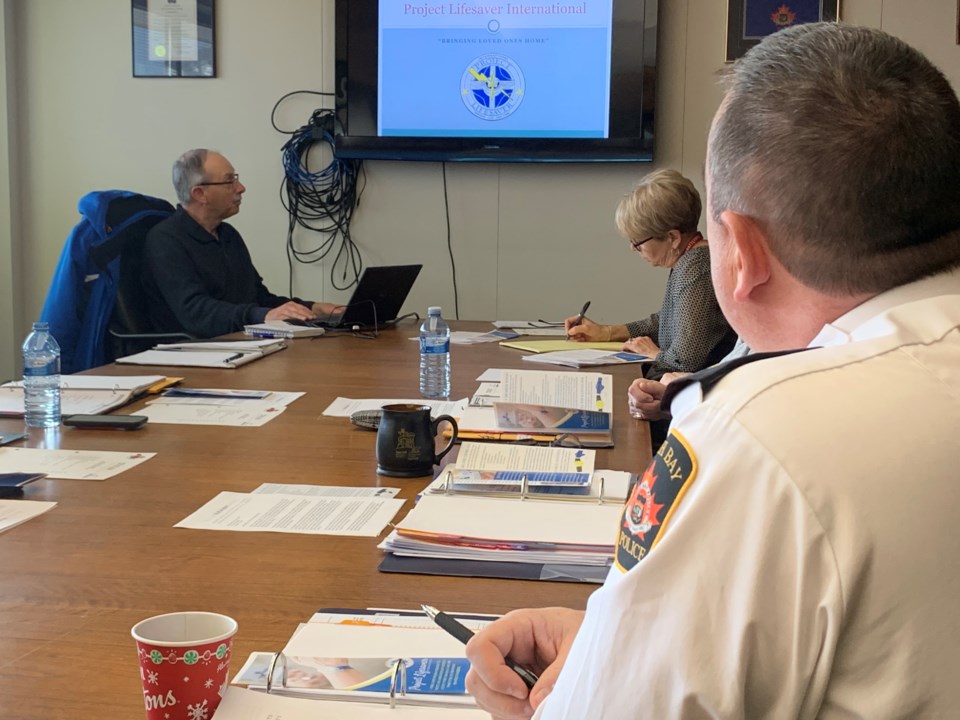The North Bay Police Board will be mulling over potentially utilizing some new technology to help track "at-risk" individuals who are prone to the life-threatening behaviour of wandering.
Stan French, from the Search and Rescue group Baysar, made a presentation to the Police Board about getting involved with "Project Lifesaver."
He says the idea came to him from a meeting he had with local Alzheimer's officials.
"We got invited as a search and rescue organization to see how we might be able to bring Project Lifesaver to North Bay," said French at the North Bay Police Board meeting on Tuesday.
"Sudbury has this technology, many parts of Southern Ontario. North Bay is one of the gaps in the service. Since then we have been looking at how can we do this and we started working with the Emergency Response Team with the North Bay Police in the spring to try to look at how can we do it and it has progressed to this point now of an actual proposal."
French says the program would supply wrist or ankle bands for the vulnerable individuals who would be suffering from Alzheimer's or Autism.
Project Lifesaver would supply three tracking devices along with 24 transmitter wrist/ankle bands. French says if approved, BaySar would start a fundraising campaign to raise $22,000 to offset some of the costs for families of the vulnerable individuals.
The North Bay Police Service would only need to pay a one-time $1000 USD fee to get on board. North Bay Police Chief Scott Tod believes the program makes sense.
"Their presentation I was very impressed with," said Tod.
"Anytime we have an opportunity to use technology to help us be more efficient in our operations we need to consider that and look at it and I think the board will do that in early January they will look at it and what level of support will be from the board and police service to Operation Lifesaver."
Each individual with a band would have their own unique frequency. If one of them went missing, a call to 9-1-1 would be made and the caller would tell dispatch they have a missing person who is on the vulnerable persons list. They would note that their loved one is part of Project Lifesaver and the search would begin.
French says the transmitters can be picked up as far away as five kilometres.
"It is always a stress on them if they do not keep constant watch they realize their loved one may wander away, and that could be fatal," said French.
"So having this backup supplies them with the piece of mind where they are able to know that if that mistake happens or if the person is able to wander off that the average time to find an individual through Project Lifesaver is 30 minutes."
The Police Board will make a decision on the potential partnership at the January Board meeting.
